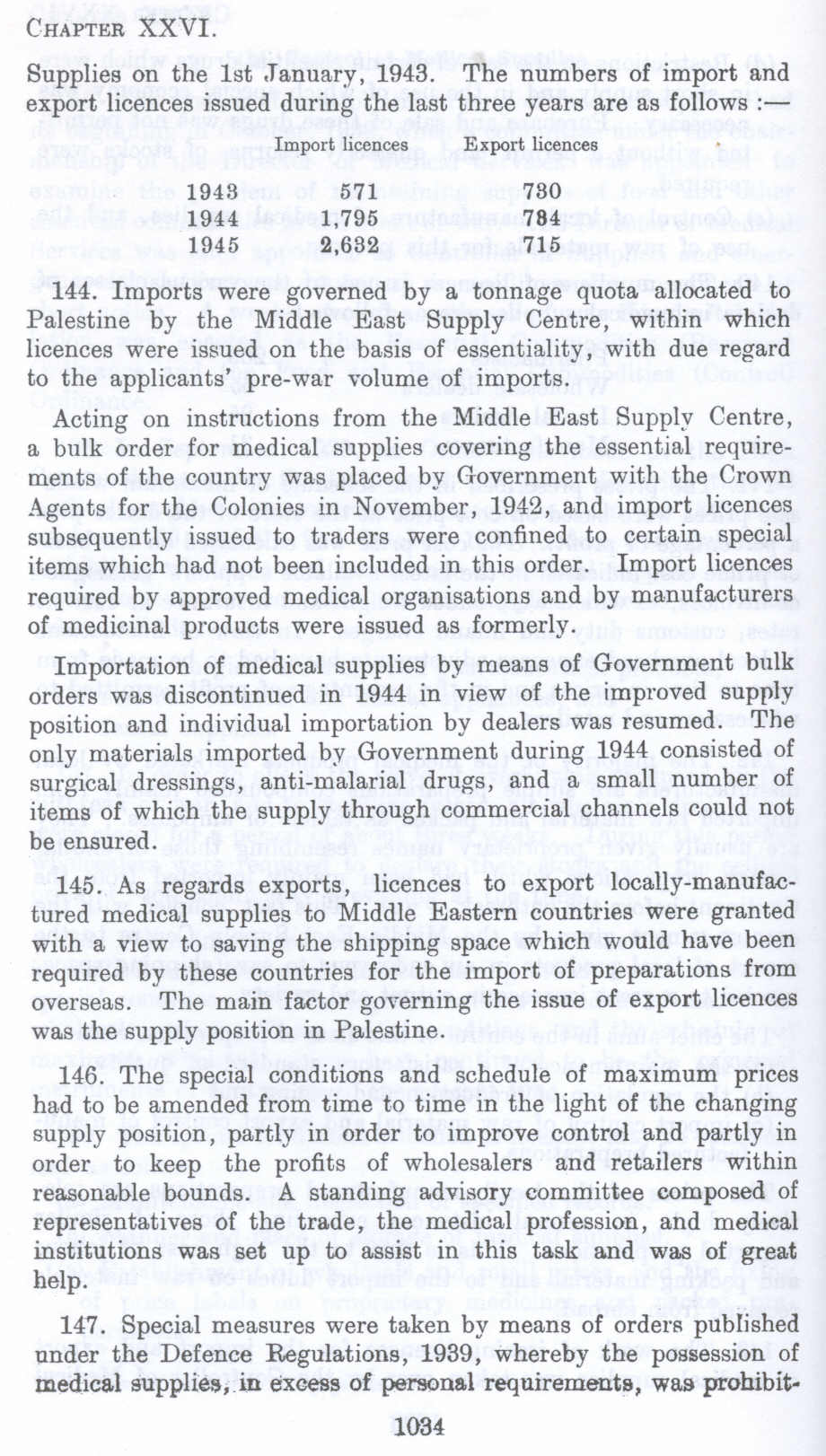| Prev | Next |  |
| Prev | Next |
| PalestineRemembered | About Us | Oral History | العربية | |
| Pictures | Zionist FAQs | Haavara | Maps | |
| Search |
| Camps |
| Districts |
| Acre |
| Baysan |
| Beersheba |
| Bethlehem |
| Gaza |
| Haifa |
| Hebron |
| Jaffa |
| Jericho |
| Jerusalem |
| Jinin |
| Nablus |
| Nazareth |
| Ramallah |
| al-Ramla |
| Safad |
| Tiberias |
| Tulkarm |
| Donate |
| Contact |
| Profile |
| Videos |
British Mandate: A Survey of Palestine: Volume II - Page 1034 |
Disclaimer
The above documents, article, interviews, movies, podcasts, or stories reflects solely the research and opinions of its authors. PalestineRemembered.com makes its best effort to validate its contents.


Post Your Comment
*It should be NOTED that your email address won't be shared, and all communications between members will be routed via the website's mail server.
Supplies on the 1st January, 1943. The numbers of import and export licences issued during the last three years are as follows :-
Import licences
Export licences
1948 1944 1945
571 1,795 2,682
780 784 715
144. Imports were governed by a tonnage quota allocated to Palestine by the Middle East Supply Centre, within which licences were issued on the basis of essentiality, with due regard to the applicants' pre-war volume of imports.
Acting on instructions from the Middle East Supply Centre, a bulk order for medical supplies covering the essential requirements of the country was placed by Government with the Crown Agents for the Colonies in November, 1942, and import licences subsequently issued to traders were confined to certain special items which bad not been included in this order. Import licences required by approved medical organisations and by manufacturers of medicinal products were issued as formerly.
Importation of medical supplies by means of Government bulk orders was discontinued in 1944 in view of the improved supply position and individual importation by dealers was resumed. The only materials imported by Government during 1944 consisted of surgical dressings, anti-malarial drugs, and a small number of items of which the supply through commercial channels could not be ensured.
145. As regards exports, licences to export locally-manufactured medical supplies to Middle Eastern countries were granted with a view to saving the shipping space which would have been required by these countries for the import of preparations from overseas. The main factor governing the issue of export licences was the supply position in Palestine.
146. The special conditions and schedule of maximum prices had to be amended from time to time in the light of the changing supply position, partly in order to improve control and partly in order to keep the profits of wholesalers and retailers within reasonable bounds. A standing advisory committee composed of representatives of the trade, the medical profession, and medical institutions was set np to assist in this task and was of great help.
147. Special measures were taken by means of orders published under the Defence Regulations, 1939, whereby the possession of medical supplies, in excess of personal requirements, was prohibit•
1034